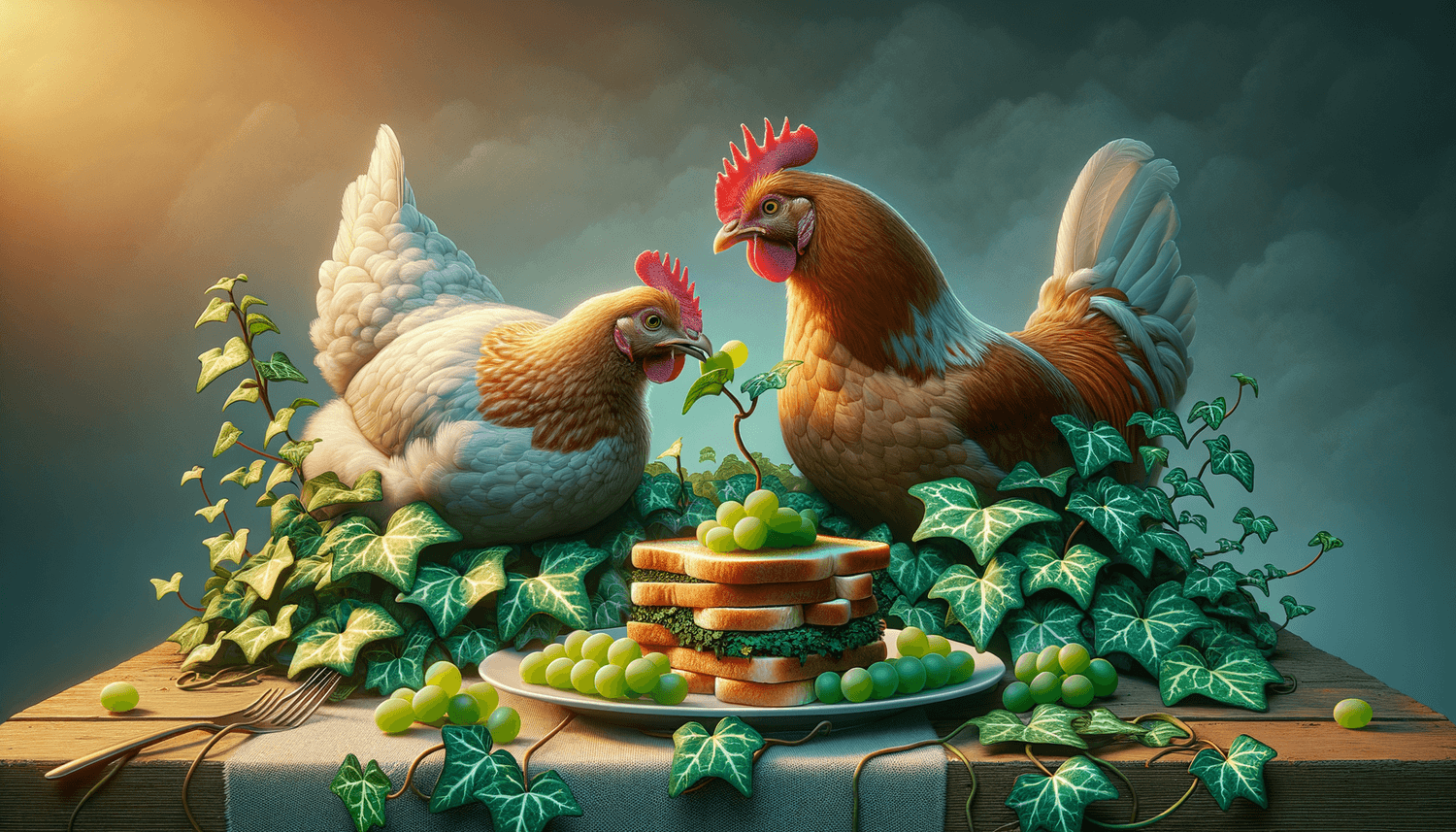No, chickens cannot eat ivy. Ivy, including the common English ivy (Hedera helix), contains saponins and polyacetylene compounds, which are toxic to chickens. Ingesting ivy can lead to a host of health issues such as vomiting, diarrhea, and even nervous system damage.
Quick Summary
- Chickens cannot eat ivy.
- Ivy contains toxic compounds that can harm chickens.
- The risks involve gastrointestinal and nervous system issues.
- There are no recommended feeding guidelines for ivy as it should be avoided.
Overview of Ivy
Ivy, often represented by species such as English ivy, is a common evergreen climbing plant. It has glossy, dark green leaves and is widely used for decorative purposes. Despite its popularity in gardens, ivy’s leaves and berries are toxic due to the presence of saponins and polyacetylene compounds, which can cause harm if ingested by chickens and other animals.
Benefits and Risks of Ivy for Chickens
There are no known benefits to chickens consuming ivy, as it poses significant health risks. The ingestion of ivy can lead to symptoms such as drooling, diarrhea, and spasm, and in severe cases, it can cause damage to the nervous system. Chicken owners should ensure ivy is not accessible to their flock to prevent accidental consumption.
Feeding Guidelines
Given the toxic nature of ivy to chickens, there are no safe feeding guidelines. It is crucial to keep chickens away from ivy and to remove any ivy from chicken enclosures or areas where chickens forage. If ivy ingestion is suspected, immediate veterinary care is necessary.
Alternatives
As ivy is harmful to chickens, owners should provide safe foraging options. Healthy alternatives include a variety of greens such as kale, lettuce, and spinach, as well as fruits like berries and melons. These provide essential nutrients and are safe for chickens to consume.
Expert Opinions
Poultry nutritionists and veterinarians unanimously agree that chickens should not be fed ivy due to its toxic properties. References to studies and official guidelines support the exclusion of ivy from poultry diets and highlight the importance of preventing access to potentially harmful plants.
Frequently Asked Questions
If you’ve just learned that chickens cannot eat ivy, you might have additional questions about what this means for your backyard flock. Here are some common questions and answers to help clarify your concerns.
What should I do if my chicken eats ivy?
If you suspect your chicken has ingested ivy, seek veterinary care immediately. Symptoms of ivy poisoning may not be immediately apparent, and a veterinarian can provide the necessary treatment to prevent complications.
How can I prevent my chickens from eating ivy?
To prevent your chickens from eating ivy, remove any ivy plants from your garden or yard areas accessible to your chickens. You can also prevent access by keeping chickens in a secure run and being vigilant when they are free-ranging.
Can chickens eat any part of the ivy plant?
No, chickens should not eat any part of the ivy plant. All parts of the plant, including leaves and berries, contain toxic substances that are harmful to chickens.

















